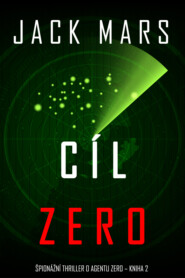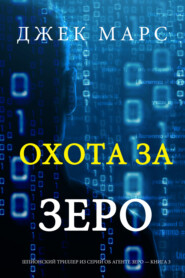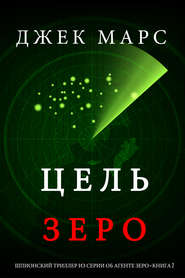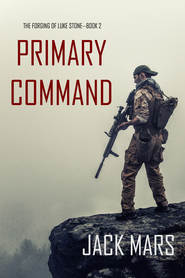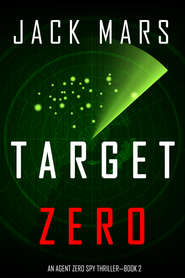По всем вопросам обращайтесь на: info@litportal.ru
(©) 2003-2025.
✖
Our Sacred Honor
Настройки чтения
Размер шрифта
Высота строк
Поля
On the screen, an image appeared of a group of men marching with banners, fists in the air. Kurt gestured at the men with a laser pointer.
“Hezbollah – the Party of God, or Army of God, depending on which translation you prefer – is probably the world’s largest and most militarily capable terror organization. They were created, and are trained, funded, and deployed, as a proxy of the Iranian government, with operations spanning Europe, Africa, Asia, and the Americas.
“As terrorists go, Hezbollah is vastly formidable. They enjoy worldwide legitimacy among Shiite Muslims, sophistication of operations, and an organizational ability that ISIS can only dream of having among Sunnis. In the areas of Lebanon where Hezbollah are based, they often act as the de facto local government, with the full cooperation of the population. They run schools, food, recreation and job programs, and they send a handful of elected representatives to the Lebanese parliament. Their military wing is far more effective and powerful than the Lebanese military. Because of the religious differences between Shiite and Sunni Muslims, Hezbollah and ISIS are enemies, sworn to destroy each other.”
“What’s so bad about that?” Susan said, only half-joking. “The enemy of my enemy is my friend, isn’t she?”
Kurt almost smiled. “Careful. Hezbollah’s policy toward our close ally Israel is one of open-ended holy war. According to Hezbollah, Israel is an existential threat, oppresses Lebanese society, oppresses the Palestinians, and must be destroyed at all costs.”
“Do they have a chance of doing that?” Susan said.
Kurt shrugged.
“They could do some damage, the extent of which we don’t know. Current assessments suggest that Hezbollah has between twenty-five thousand and thirty thousand fighters. Perhaps ten thousand to fifteen thousand of those fighters have combat experience, either during the 2006 war, or more recently fighting directly against ISIS in the Syrian Civil War. We believe as many as twenty thousand troops have received training from the Iranian Revolutionary Guards – five thousand or more have gone to Iran and received extensive training.
“Hezbollah has a network of deep tunnels and fortifications in the hilly region just north of the Blue Line, which during the 2006 war with Israel proved impossible to completely take out from the air. Israeli intelligence assessments suggest that these forts have only become deeper, more hardened, and more sophisticated since 2006. Our own intelligence suggests that Hezbollah has more than sixty-five thousand rockets and missiles, plus millions of rounds of small arms ammunition. Their arsenal is probably five times as large as it was in 2006. Throughout Hezbollah’s history, Iran has been reluctant to provide them with anything more than slow-moving, short-range missiles and rockets, and we suspect that this is still the case.”
“What is Israel doing?” the man in dress greens said.
Kurt nodded. Behind him on the screen, the Blue Line reappeared. All along the south side of it, small icons of soldiers appeared.
“Now we get to the meat of it. The Israelis have amassed a large incursion force at the border, with more units joining all the time. The Secretary of State has been on the phone with Yonatan Stern, the Israeli Prime Minister. Yonatan is a hardliner, popular with the right wing of Israeli society. To maintain his popularity with his base, he’s going to have to deliver here. He needs a decisive victory, a return of the missing soldier – something. We understand he plans to send the Israeli incursion force across the border within the next few hours, essentially invading Lebanon.”
“In a sense, you could say that Israel was already invaded by Lebanon,” the military man said.
Kurt nodded. “You could say that. Combined with the invasion, Stern plans to conduct a bombing campaign. We have requested that the bombing campaign be limited to twelve hours in duration, be designed to avoid civilian casualties, and only target known Hezbollah military assets.”
“What did Yonatan say to that?” Susan said. Yonatan Stern was not her favorite person in the world. You might even say that they did not get along.
“He said he would take it under advisement.”
Susan shook her head. “Yonatan’s another one of you men. He never met a war, or a weapon system, he didn’t like.”
She paused. This seemed like another low-grade Israel-Hezbollah skirmish, just like all the Israel-Hamas skirmishes, and the Israel-PLO skirmishes before those. Ugly, bloody, brutish, and in the end, inconclusive. Just another practice round for the next practice round.
“So what is our end game here, Kurt? What are the dangers, and what do you suggest that we do?”
Kurt sighed. His perfectly bald head reflected the lights recessed in the ceiling. “As always, the danger is that the fighting spills out of control and becomes linked to, or causes, other regional fighting. Hezbollah and the Palestinians are allies. Often, Hamas uses these wars with Hezbollah as cover to launch their own guerrilla attacks inside Israel. Syria is in chaos, with numerous small, but heavily armed groups looking to exploit instability.
“Meanwhile, large majorities in Jordan, Egypt, Turkey, and Saudi Arabia identify as anti-Israel. And there is always Iran, the biggest, meanest kid on that block, hovering in the background with arms folded, with the big Russian bear hovering behind them. Everyone involved is armed to the teeth.”
“And our next steps?”
Kurt shook his head and shrugged his big shoulders. “Our next steps are to walk a fine line. The whole region is a minefield, and we need to be careful where we put our feet. Israel is one of our closest allies and an important strategic partner. They are really the only functioning democracy in the whole region. At the same time, Lebanon has been an ally and a partner of ours for a long time. Jordan and Turkey are allies of ours. We buy the bulk of our foreign energy supplies from Saudi Arabia. We also have a commitment to brokering peace between the Palestinians and Israel, and engineering the creation of a sovereign state in Palestine.”
He nodded, as if to himself. “I’d say our job is to not inflame tensions any further, and hope this little flare-up turns out to be a nine-day wonder – or better yet, a nine-hour wonder.”
Susan almost laughed. “In other words, we sit on our hands.”
Now Kurt smiled. “I’d say we should sit on our hands. But right now our hands are tied behind our backs.”
CHAPTER SIX
December 12
1:40 p.m. Israel Time (6:40 am Eastern Standard Time)
Tel Aviv, Israel
The news was bad.
The young woman sat on the park bench, watching her little boy and girl, twins, play on the swing set. In the near distance was the tan apartment block, sixteen stories high, where the woman lived. There was no one around today, the park mostly empty.
It was unusual for an early afternoon in spring, but not surprising given the circumstances. Most of the country seemed to be inside somewhere, glued to their TV and computer screens.
Last night, Daria Shalit, a nineteen-year-old soldier in the Israeli Defense Forces, had gone missing after a skirmish with Hezbollah terrorists who had made a surprise attack along the northern border. The seven other soldiers in her patrol – all men – had died in the fighting. But not Daria. Daria was just gone.
IDF troops had pursued the terrorists back into Lebanon. Four more Israelis had died in the fighting there. Eleven young men – the cream of Israeli youth – all dead in an hour. But that was not what consumed the country.
The fate of Daria had become an overnight obsession. If the woman closed her eyes, she could see Daria’s pretty face and dark eyes alight, smiling as she clowned around with a machine gun, smiling as she posed with friends in bikinis on a Mediterranean beach, smiling as she received her school diploma. So beautiful and always beaming, as though her future was assured, a promise she was sure to receive.
The woman did close her eyes now and let the tears stream down her cheeks. She put a hand to her face, hoping her children would not see her weep. Her heart was broken for a girl she had never met but somehow knew as well as if Daria were her own sister.
The newspapers were crying out for blood, demanding the complete destruction of the Lebanese people. There were violent arguments in the Knesset through the night, as the government issued threats, demanded the girl’s release, but took no immediate action. A rage was building, ready to explode.
Hours ago, the bombing had begun.
Israeli jets were pounding southern Lebanon, the Hezbollah stronghold, and all the way north to Beirut. Each time the announcements came on TV, the woman’s neighbors in her apartment building erupted in shouts and cheers.
“Kill every one of them!” an old man shouted in something that sounded like triumph, but of course could not be. His gruff voice was clear through the paper thin walls. “Kill every single one!”
The woman took her children outside after that.
Now she sat in the park, silently weeping, letting herself cry, getting it out, all the while her ears tuned carefully to the calls and shouts of her two children. Her children, innocents, would grow to adulthood surrounded by enemies who would gladly see their throats cut and their flesh bled white.
“What are we to do?” the woman whispered. “What are we to do?”
The answer came in the form of a new sound, low and far away at first, mingling with the sounds of her children. Soon it moved closer and louder, then louder still. It was a sound she knew too well.
Air raid sirens.
Her eyes popped open.
Her children had stopped playing. They stared across the playground at her. The sirens were loud now.
LOUD.
“Mama!”
“Hezbollah – the Party of God, or Army of God, depending on which translation you prefer – is probably the world’s largest and most militarily capable terror organization. They were created, and are trained, funded, and deployed, as a proxy of the Iranian government, with operations spanning Europe, Africa, Asia, and the Americas.
“As terrorists go, Hezbollah is vastly formidable. They enjoy worldwide legitimacy among Shiite Muslims, sophistication of operations, and an organizational ability that ISIS can only dream of having among Sunnis. In the areas of Lebanon where Hezbollah are based, they often act as the de facto local government, with the full cooperation of the population. They run schools, food, recreation and job programs, and they send a handful of elected representatives to the Lebanese parliament. Their military wing is far more effective and powerful than the Lebanese military. Because of the religious differences between Shiite and Sunni Muslims, Hezbollah and ISIS are enemies, sworn to destroy each other.”
“What’s so bad about that?” Susan said, only half-joking. “The enemy of my enemy is my friend, isn’t she?”
Kurt almost smiled. “Careful. Hezbollah’s policy toward our close ally Israel is one of open-ended holy war. According to Hezbollah, Israel is an existential threat, oppresses Lebanese society, oppresses the Palestinians, and must be destroyed at all costs.”
“Do they have a chance of doing that?” Susan said.
Kurt shrugged.
“They could do some damage, the extent of which we don’t know. Current assessments suggest that Hezbollah has between twenty-five thousand and thirty thousand fighters. Perhaps ten thousand to fifteen thousand of those fighters have combat experience, either during the 2006 war, or more recently fighting directly against ISIS in the Syrian Civil War. We believe as many as twenty thousand troops have received training from the Iranian Revolutionary Guards – five thousand or more have gone to Iran and received extensive training.
“Hezbollah has a network of deep tunnels and fortifications in the hilly region just north of the Blue Line, which during the 2006 war with Israel proved impossible to completely take out from the air. Israeli intelligence assessments suggest that these forts have only become deeper, more hardened, and more sophisticated since 2006. Our own intelligence suggests that Hezbollah has more than sixty-five thousand rockets and missiles, plus millions of rounds of small arms ammunition. Their arsenal is probably five times as large as it was in 2006. Throughout Hezbollah’s history, Iran has been reluctant to provide them with anything more than slow-moving, short-range missiles and rockets, and we suspect that this is still the case.”
“What is Israel doing?” the man in dress greens said.
Kurt nodded. Behind him on the screen, the Blue Line reappeared. All along the south side of it, small icons of soldiers appeared.
“Now we get to the meat of it. The Israelis have amassed a large incursion force at the border, with more units joining all the time. The Secretary of State has been on the phone with Yonatan Stern, the Israeli Prime Minister. Yonatan is a hardliner, popular with the right wing of Israeli society. To maintain his popularity with his base, he’s going to have to deliver here. He needs a decisive victory, a return of the missing soldier – something. We understand he plans to send the Israeli incursion force across the border within the next few hours, essentially invading Lebanon.”
“In a sense, you could say that Israel was already invaded by Lebanon,” the military man said.
Kurt nodded. “You could say that. Combined with the invasion, Stern plans to conduct a bombing campaign. We have requested that the bombing campaign be limited to twelve hours in duration, be designed to avoid civilian casualties, and only target known Hezbollah military assets.”
“What did Yonatan say to that?” Susan said. Yonatan Stern was not her favorite person in the world. You might even say that they did not get along.
“He said he would take it under advisement.”
Susan shook her head. “Yonatan’s another one of you men. He never met a war, or a weapon system, he didn’t like.”
She paused. This seemed like another low-grade Israel-Hezbollah skirmish, just like all the Israel-Hamas skirmishes, and the Israel-PLO skirmishes before those. Ugly, bloody, brutish, and in the end, inconclusive. Just another practice round for the next practice round.
“So what is our end game here, Kurt? What are the dangers, and what do you suggest that we do?”
Kurt sighed. His perfectly bald head reflected the lights recessed in the ceiling. “As always, the danger is that the fighting spills out of control and becomes linked to, or causes, other regional fighting. Hezbollah and the Palestinians are allies. Often, Hamas uses these wars with Hezbollah as cover to launch their own guerrilla attacks inside Israel. Syria is in chaos, with numerous small, but heavily armed groups looking to exploit instability.
“Meanwhile, large majorities in Jordan, Egypt, Turkey, and Saudi Arabia identify as anti-Israel. And there is always Iran, the biggest, meanest kid on that block, hovering in the background with arms folded, with the big Russian bear hovering behind them. Everyone involved is armed to the teeth.”
“And our next steps?”
Kurt shook his head and shrugged his big shoulders. “Our next steps are to walk a fine line. The whole region is a minefield, and we need to be careful where we put our feet. Israel is one of our closest allies and an important strategic partner. They are really the only functioning democracy in the whole region. At the same time, Lebanon has been an ally and a partner of ours for a long time. Jordan and Turkey are allies of ours. We buy the bulk of our foreign energy supplies from Saudi Arabia. We also have a commitment to brokering peace between the Palestinians and Israel, and engineering the creation of a sovereign state in Palestine.”
He nodded, as if to himself. “I’d say our job is to not inflame tensions any further, and hope this little flare-up turns out to be a nine-day wonder – or better yet, a nine-hour wonder.”
Susan almost laughed. “In other words, we sit on our hands.”
Now Kurt smiled. “I’d say we should sit on our hands. But right now our hands are tied behind our backs.”
CHAPTER SIX
December 12
1:40 p.m. Israel Time (6:40 am Eastern Standard Time)
Tel Aviv, Israel
The news was bad.
The young woman sat on the park bench, watching her little boy and girl, twins, play on the swing set. In the near distance was the tan apartment block, sixteen stories high, where the woman lived. There was no one around today, the park mostly empty.
It was unusual for an early afternoon in spring, but not surprising given the circumstances. Most of the country seemed to be inside somewhere, glued to their TV and computer screens.
Last night, Daria Shalit, a nineteen-year-old soldier in the Israeli Defense Forces, had gone missing after a skirmish with Hezbollah terrorists who had made a surprise attack along the northern border. The seven other soldiers in her patrol – all men – had died in the fighting. But not Daria. Daria was just gone.
IDF troops had pursued the terrorists back into Lebanon. Four more Israelis had died in the fighting there. Eleven young men – the cream of Israeli youth – all dead in an hour. But that was not what consumed the country.
The fate of Daria had become an overnight obsession. If the woman closed her eyes, she could see Daria’s pretty face and dark eyes alight, smiling as she clowned around with a machine gun, smiling as she posed with friends in bikinis on a Mediterranean beach, smiling as she received her school diploma. So beautiful and always beaming, as though her future was assured, a promise she was sure to receive.
The woman did close her eyes now and let the tears stream down her cheeks. She put a hand to her face, hoping her children would not see her weep. Her heart was broken for a girl she had never met but somehow knew as well as if Daria were her own sister.
The newspapers were crying out for blood, demanding the complete destruction of the Lebanese people. There were violent arguments in the Knesset through the night, as the government issued threats, demanded the girl’s release, but took no immediate action. A rage was building, ready to explode.
Hours ago, the bombing had begun.
Israeli jets were pounding southern Lebanon, the Hezbollah stronghold, and all the way north to Beirut. Each time the announcements came on TV, the woman’s neighbors in her apartment building erupted in shouts and cheers.
“Kill every one of them!” an old man shouted in something that sounded like triumph, but of course could not be. His gruff voice was clear through the paper thin walls. “Kill every single one!”
The woman took her children outside after that.
Now she sat in the park, silently weeping, letting herself cry, getting it out, all the while her ears tuned carefully to the calls and shouts of her two children. Her children, innocents, would grow to adulthood surrounded by enemies who would gladly see their throats cut and their flesh bled white.
“What are we to do?” the woman whispered. “What are we to do?”
The answer came in the form of a new sound, low and far away at first, mingling with the sounds of her children. Soon it moved closer and louder, then louder still. It was a sound she knew too well.
Air raid sirens.
Her eyes popped open.
Her children had stopped playing. They stared across the playground at her. The sirens were loud now.
LOUD.
“Mama!”






